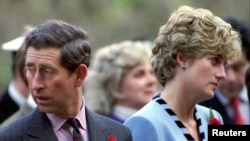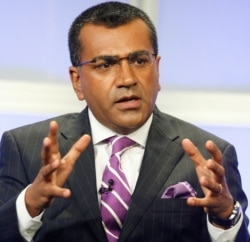An inquiry into how the BBC secured the 1995 interview with Britain's Princess Diana in which she disclosed intimate details of her failed marriage concluded on Thursday that the journalist involved had acted deceitfully.
The BBC set up the investigation, headed by former senior Court judge John Dyson, in November following allegations from Diana's brother Charles Spencer that forged documents and "other deceit" were used to trick him to introduce Diana to journalist Martin Bashir.
Dyson's report found that Bashir, then a little known reporter, had shown Spencer fake bank statements to induce him to arrange a meeting with Diana.
"Mr Bashir acted inappropriately and in serious breach of the 1993 edition of the Producers’ Guidelines on straight dealing," the report said.
He also concluded the BBC had fallen short of "the high standards of integrity and transparency which are its hallmark" in its response to allegations of impropriety.
During the explosive interview, watched by more than 20 million viewers in Britain, Diana shocked the nation by admitting to an affair and sharing details of her marriage to the heir to the throne, Prince Charles.
It came at a nadir for the royal family and was the first time Diana, who died in a Paris car crash in 1997, had made public comments about her doomed marriage.
Her remark that "there were three of us in this marriage, so it was a bit crowded" — a reference to Charles rekindling his relationship with Camilla Parker Bowles, now his second wife — was particularly damaging to the Windsors.
Last week, the BBC announced that Bashir was leaving his current job as the publicly-funded broadcaster's religious affairs editor because of ill health.
Bashir apologized but said he did not believe the faked statements had prompted Diana to give the interview, PA Media reported.
Spencer says Bashir had persuaded him to get his sister to agree to the interview by telling him Diana was being bugged by the security services and that two senior aides were being paid to provide information about her.
Both Diana's sons, Prince William and Prince Harry, have welcomed the investigation as a chance to find out the truth of what had happened.
"While the BBC cannot turn back the clock after a quarter of a century, we can make a full and unconditional apology. The BBC offers that today," BBC director-general, Tim Davie, said in a statement.






